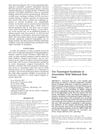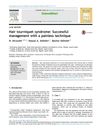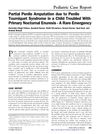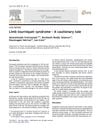Hair Tourniquet Syndrome: A Missed Diagnosis - Review of Literature
November 2013
in “
International Journal of Medical and Health Sciences
”
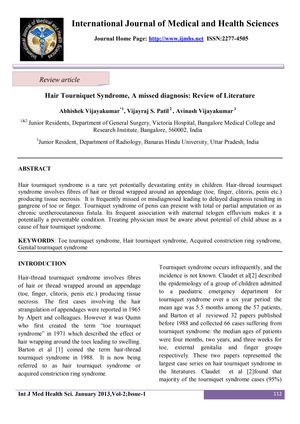
TLDR Doctors often miss Hair Tourniquet Syndrome, which can lead to serious damage if not treated quickly.
The document is a review of Hair Tourniquet Syndrome (HTS), a condition where hair or thread wraps tightly around an appendage, leading to potential tissue necrosis. It is often misdiagnosed, which can result in severe outcomes such as gangrene. HTS is most commonly seen in infants, with a study showing a mean age of 5.5 months among 57 patients. The condition can be associated with maternal telogen effluvium, which is hair loss after childbirth. The review highlights the need to consider child abuse as a possible cause of HTS and also touches on genital tourniquet syndrome in older children. Treatment requires immediate removal of the constricting material, and education for postpartum mothers is key to prevention. The review stresses the importance of awareness for timely diagnosis and treatment to avoid serious consequences and recommends investigation for child abuse in all cases.
